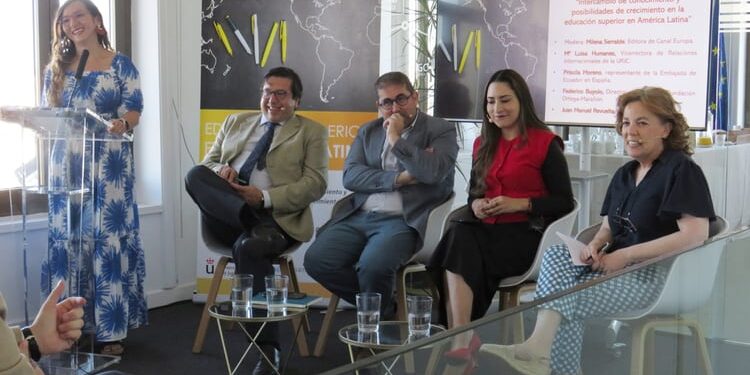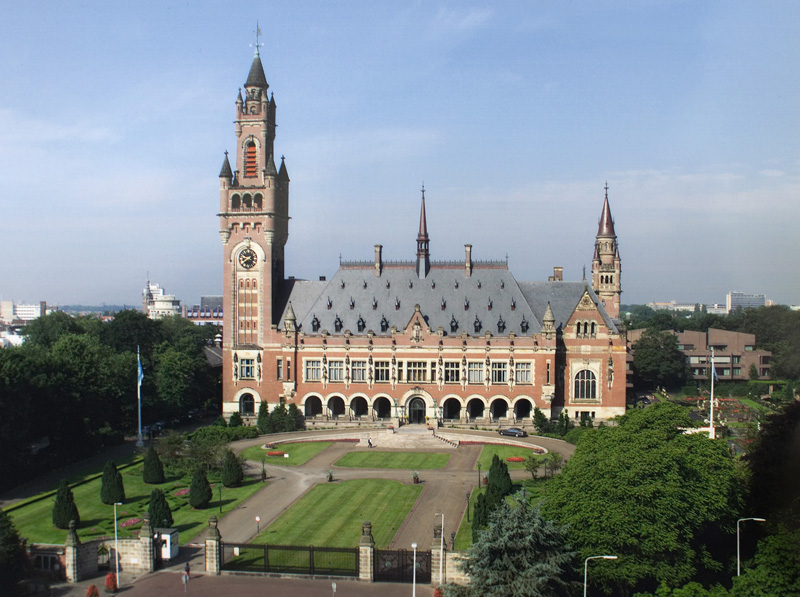The Diplomat
The Prestomedia headquarters in Madrid hosted the Higher Education Forum in Latin America, in which the connections between that region and Europe and specific aspects such as the recruitment of professionals and the exchange of knowledge were analyzed.
Organized by Prestomedia, in collaboration with the Rey Juan Carlos University and R4, the forum, which took place last Tuesday, focused on the two fundamental steps of the higher education process: training and access to the labor market.
The day took place in two round tables in which the participants addressed the exchange of knowledge and the possibilities of growth in higher education in Latin America, as well as the professional future and entrepreneurship possibilities.
In the first of them, María Luisa Humanes, vice-rector of International Relations of the Rey Juan Carlos University, participated; Federico Buyolo, cultural director of the Ortega-Marañón Foundation; Juan Manuel Revuelta, CEO of Finnova Foundation; and Priscila Moreno, representative of the Ecuadorian Embassy in Spain.
The speakers analyzed the current situation of education in Latin America and the inequality gaps that cross it, as well as the existing imbalances with higher education in Spain and the European Union. In this sense, Priscila Moreno highlighted the “gap in training” as a consequence of inequalities in Latin America and stated that in her region “there is no skills evaluation, there are no homologations and it is not at the same level as Spain.”
In this context, Federico Buyolo stated that the changes must be social since “thinking about changing the university without changing society is one of the first mistakes.”
Juan Manuel Revuelta wanted to provide “a certain optimism” and stated that from the European Union “many universities are marking a very specific path with European funds that are not yet being implemented,” but that steps are being taken for the development of higher education in Latin America hand in hand with university centers.
From the Rey Juan Carlos University, María Luisa Humanes highlighted that the higher centers have focused their relations with Latin American universities “on the exchange and recruitment” of students, and added that the EU is promoting micro-credentials, since which are “a very important tool when it comes to balancing the educational level of students from both regions by allowing continuous training.”
The second round table focused on the next steps of the students after finishing their studies, on the profiles that companies are looking for and on the possibilities of entrepreneurship between both regions. The speakers were Eduvigis Ortiz, president and founder of Women4Cyber; Allen Sellers Lara, director of Strategy and Institutional Relations at ARMANEXT and former ambassador of Panama in Spain; and Sergio Aguado, business school professor and banking director.
Allen Sellers assured that in Latin America they are generating “technology professionals, who are creating their own software businesses that need financing.” He added that entrepreneurs in his region “have always looked for financing in the US,” but now “they are looking at Europe.”
For her part, Eduvigis Ortiz indicated that technology is a sector completely crossed by the inequality gap and that “women are a third of the sector”, something that is exacerbated in Latin America.
Regarding the professional opportunities of the future, Sergio Aguado stated that, with the current technological situation, soft skills stand out in the professional profile, stating that the key is in “that midpoint between humility and ambition.” In relation to the educational gap, he considered that, to reduce it, “we must orient higher education towards the personalization of the student to join the market.”







